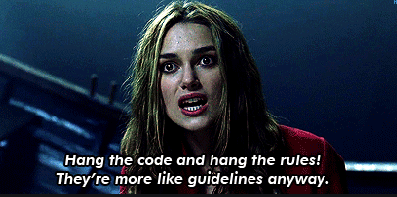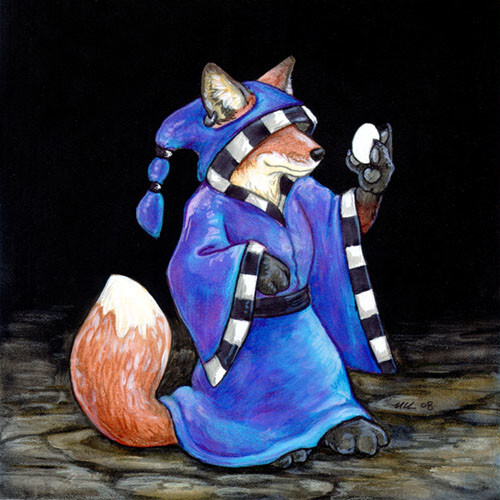I really hate whenever I try to explain how some bad rules can be abused and immediatelly get someone say shit like "If this happens in your group, change it" as if that would solve the problem. And whenever it is not soemthing you witnessed personally, then it means it never happens and could never happen.
This has a lot of "stop enjoying that!" energy.
There's no set of rules that a clever person can't exploit or circumvent in some way, and min/maxers have been a plague on the RPG community since long before 5e. Frankly, if this sort of thing is a regular issue for you then the problem is the people you're playing with. A good DM can roll with players like this and balance them.
This has a lot of "I've only played D&D" energy. I am fascinated to hear your examples of exploits in VtM, or CoC, or even PF2e. Exploits and rules abuse have always been issues in D&D, which is just one of the reasons there are so many systems that aren't D&D. Plenty of rules can't be exploited, regardless of how intelligent you are - being clever isn't a magic spell that just lets you unravel rules to be remade in your image.
It's legit not hard to make an OP/powerful character in either VtM or CoC, assuming youre talking about making a character good at combat (which is usually what people talk about in this context with power gaming). I don't play PF2e, though, so i cant speak there.
CoC take high dex, put 90+ in handguns, take the pulp talents rapid fire and quick draw, wear a bandolier of guns, and dual wield pistols that you fire 6 shots from per turn. If you dont care about going first, then fast load if you care about reloading, if not, then just take shadow and start combat hidden for two attacks with a bonus die at the start.
For VtM its easy as take fist of caine and lightning strike. If you aren't playing as elders, this requires gaining some exp first. I know there's other combos that i cant think of off hand that are pretty potent too.
Each of these do have counters in the form of monsters immune to guns (CoC), or celerity 5 opponents (VtM), but thats no different than a DM in D&D always throwing fireballs at the guy with high AC. It begins to be apparent when its happening all the time that the GM/DM/Keeper/whatever is specifically targeting your weakness.
Minmaxxing isn't really the same as rules exploits - you can do those things to become really good at combat, but you're sacrificing your abilities in other areas, which make up a significant part of the game. It's not like hiding behind a tower shield to disappear or undead warlocks short resting to stack death ward, where you're actively taking advantage of wording and rules interactions to achieve unintended effects.
i mean, if youre wanting exploitative rule mechanics based on wording/interactions, you need to look no further than base first aid and medicine in CoC; You're able to make 1 of each per wound you take. Unlike older editions, they've done away with the heal cap on it, so if you're down HP, simply deal yourself 1 HP of damage, make a first aid check. and then make a medicine check to heal at minimum 2 HP. Repeat until full. You can easily reheal yourself to full this way, which is definitely "unintended" based on how healing works (and older editions).
Edit: at the end of the day, my point is that pretending other games cant or dont have exploitative mechanics/builds/whatever is naive at best? It's not a D&D only problem. It's just more prevalent in D&D because 1) it has more rules and 2) it has more players.
I think you've conflated part of those rules - there's nothing in the medicine skill saying you can only do it once per wound, just first aid. So you can deal/restore 1 damage in between medicine checks, but that's not what let's you keep making medicine checks.
A character is limited to one successful treatment of both First Aid and Medicine until further damage is taken.
Pg. 65, under first aid.
So it is, I'd been looking at the damage and healing rules on 120. I'm sure that's going to be fun to bring up at the table...
Still, I don't think that's as egregious as something like pun-pun or sorlocks short resting to regain spells. There are exploits in other systems, but not at the level or frequency of D&D.
For VtM its easy as take fist of caine and lightning strike.
Yeah you ripped someone's heart out in 3 seconds because your fast and strong, cool now you're covered in blood and a walking Masquerade breach becaise you punched through someone's ribcage The cops are on their way, second inquisition are listening in on radios, the Prince is disappointed that an elder is this careless and the sheriff is going to laugh at you as you're turning to dust because disciplines can only do so much before you fall into torpor because you're out of blood points/at max hunger.
Also the toxicity that is implied to exist by this post is pretty rare really. Even back when I was using Reddit, toxicity generally sank to the bottom of comment sections, and even more so here. When I got into D&D close to the beginning of 5e, some online voices on YouTube for example carried this toxicity but nowadays, most voices are far newer and friendly.
In general, most people are more interested in what happens at their table instead of all tables, and the rules are just guidelines to aid that.
I wouldn’t say it implies a toxic fanbase at all. It clearly states that’s the MO of an apologist. It further states that someone chimes in with that MO. Not a horde, not a group, an individual.
And I agree wholeheartedly. They are a minority. A very annoying, very vocal, minority.
The amount of cope is staggering sometimes and makes me disengage from discussing the hobby altogether.
Even your comment has some cope mechanism embedded:
The rules are just guidelines
As if nobody knew that. The guidelines are shit at some points, that’s the whole discussion.
Every edition of every ttrpg has had rules that can be exploited and abused, and the solution has always been for groups to alter rules as necessary. It's impossible to make an airtight ruleset. You are just a 5e hater.
You are just a 5e hater.
Yes (though mostly a 3.5 hater, though hate is probably way too strong a word, more like a "I wish 80% of RPG players played something else") (I haven't played 5e, played a bunch of 4e)
Considering I've been running 5e since the Plague Year, I wouldn't call myself a hater. I did notice, however, this very pattern whenever I voice concerns about anything with the rules - first people assume whatever flaw or exploit I point out, has been used in my group and then their solution is always to leave the group or kick someone out of it, and if it didn't happen in my group, then it means it doesn't ever happen. It's a catch-22 debating with these people.
My hypothesis is that a lot of people are emotionally invested in DND, and if you say bad things about it then it feels like you're saying bad things about them. Saying it didn't happen or it was the players fault let's them still feel good about DND.
We're all susceptible to this.
For some reason DND fans seem less likely to just go "yeah it's kind of garbage but I like it"
I dislike 5th edition for a lot of reasons, but this is extremely oversimplified binary thinking.
I'm just not bothering with a company that's repeating the exact same mistakes as their predecessors, so it's basically anything but 5e for me nowadays.
Serious question - what rules in 5e encourage bad player behaviour?
This is silly. EVERY system can be exploited, and every group should expect eachother to act in good faith. The difference between systems is what parts are done for you and what parts you do yourself, and every group is going to want a different assortment of those pieces. You're just mad that some groups get what they want out of DnD. You are the problem person in this image.





